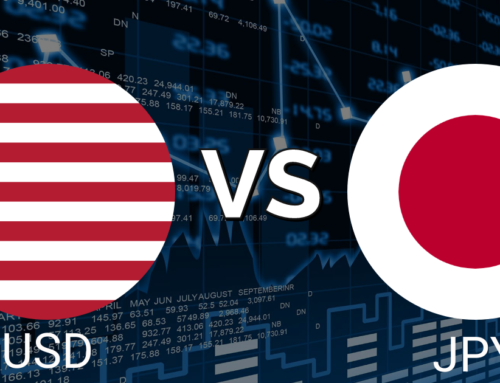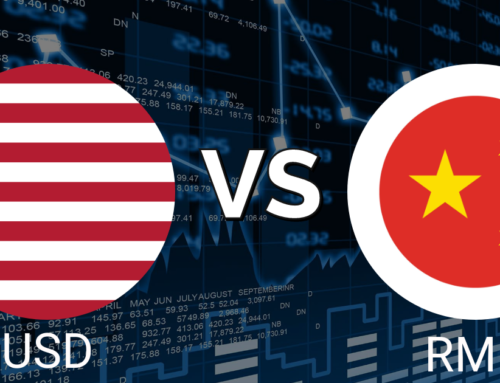
The dollar is the official currency of the United States and its territories per the United States Constitution. The United States dollar is divided into 100 smaller units called cents. The dollars are often identified by U.S. dollars or USD. With the introduction of Bitcoin Cash in August 2017, the bitcoin currency was split into two derivative currencies, the classic bitcoin (BTC) and the Bitcoin Cash (BCH).
What is BCH?
Bitcoin Cash (BCH) is a proof-of-work blockchain network and cryptocurrency that is faster and cheaper to use than Bitcoin. The asset was produced as a result of a hard fork in the Bitcoin blockchain network, and its own community has since formed. Bitcoin Cash, like its precursor, is accepted by a few businesses and may be purchased on PayPal, similar to Bitcoin.
Bitcoin Cash is frequently seen as a cheap imitation of Bitcoin by Bitcoin maximalists. This is based on select observations that others make. The block size parameter was just changed with Bitcoin Cash, according to some observers. The Bitcoin Cash network did not implement the SegWit softfork. Worse, some people have claimed that because Bitcoin Cash is a fork of bitcoin, it “is” bitcoin. That Bitcoin Cash may have inspired dozens of imitations including Bitcoin Gold and Litecoin Cash doesn’t help its reputation any.
History of Bitcoin Cash
Bitcoin Cash was created as a consequence of the dramatic conclusion to Bitcoin political upheaval that began in 2010 and ended in 2017. An economic minority, including Haipo Yang of ViaBTC and Calvin Lee, lead the creation of Bitcoin Cash at block height 478559.
The genesis block, the first Bitcoin block, was established on Jan. 3, 2009. Since then, the asset has grown in popularity. However, because of scalability issues and lengthy transaction times, Bitcoin is still the world’s first cryptocurrency. This is when Bitcoin Cash comes into play.
It’s essentially a huge software upgrade in which the old network is gradually separated from the new one. This time, Bitcoin Cash created its own future as opposed to Bitcoin.
The fork was chosen by various Bitcoin miners and developers, who desired to remove the restrictions associated with it. After all, many people think that Bitcoin was created for digital transactions rather than as a store of value. How can Bitcoin hope to appeal to the general public when monetary exchanges take minutes or even hours? Furthermore, there are high transaction costs.
However, those who opposed the fork had several motives. For example, because Bitcoin Cash has larger blocks, it necessitates a more complicated mining method that may destroy miners with modest computing resources. At the same time, this may concentrate the platform among the most powerful miners, such as businesses.
Then there’s the process of forking away. Those who held Bitcoin at the time of the fork received the same amount of Bitcoin Cash as those who held Bitcoin before it split. This is a typical scenario with hard forks, but it was accused by some people of being a “get-rich-quick” scheme.
Advantages of BCH
In terms of technical architecture, Bitcoin Cash is identical to Bitcoin. Both Bitcoin Cash and Bitcoin have a hard cap of 21 million assets, use nodes to validate transactions, and use a PoW consensus mechanism. Miners validate transactions using computational power and are paid in BCH as a reward for their efforts.
BCH, on the other hand, works faster and has fewer transaction costs than its predecessor since to the larger block size. It’s much better equipped for small purchases like paying for a cup of coffee with cryptocurrency.
Bitcoin Cash, on the other hand, allows for smart contracts and applications such as CashShuffle and CashFusion.
CashShuffle is a Bitcoin Cash mixing service that mixes your cash with other users’ before sending it to you. As a result, your transactions are more private and difficult to find because Bitcoin Cash is a public ledger.
Coin mixing, on the other hand, isn’t always successful. To begin with, it necessitates users to entrust their funds to a third-party service, which is ironic given that cryptocurrency is supposed to be autonomous or pseudonymous. Mixing might be expensive, which isn’t good for frequent traders. Mixers have been targeted by numerous countries because the money entering such platforms is typically acquired through unlawful channels.
Rather of combining transactions with others, CashFusion uses a single huge transaction containing all CashFusion users’ BCH. It then transmits the BCH back to your wallet, with the exception that your transaction has been muddled together and linked with hundreds of other transactions, making it all but impossible to follow a trail back to your bitcoin.
However, these are merely two of the many applications that exist within the Bitcoin Cash ecosystem. BCH has motivated dozens of protocols and other projects to enhance the technology and make it more accessible to everyone.
USD News
- Hybrid Cloud Market is Poised to Reach USD 348.14 Billion by 2031 | SkyQuest Technology - EIN Newson October 22, 2024 at 5:01 pm
Hybrid Cloud Market is Poised to Reach USD 348.14 Billion by 2031 | SkyQuest Technology EIN News
- Gold Price Forecast: XAU/USD nears $2,750 in record rally - FXStreeton October 22, 2024 at 4:58 pm
Gold Price Forecast: XAU/USD nears $2,750 in record rally FXStreet
- AUD/USD Price Forecast: Decent contention emerges around 0.6650 - FXStreeton October 22, 2024 at 4:39 pm
AUD/USD Price Forecast: Decent contention emerges around 0.6650 FXStreet
- Hemostatic Agents Market Size to Achieve USD 4.5 Billion by 2031 with 6.2% CAGR, Supporting Hemostasis for Effective Bleeding Control| Transparency Market Research, Inc. - Yahoo Financeon October 22, 2024 at 4:29 pm
Hemostatic Agents Market Size to Achieve USD 4.5 Billion by 2031 with 6.2% CAGR, Supporting Hemostasis for Effective Bleeding Control| Transparency Market Research, Inc. Yahoo Finance
- U.S. Dollar Gains More Ground: Analysis For EUR/USD, GBP/USD, USD/CAD, USD/JPY - FX Empireon October 22, 2024 at 4:23 pm
U.S. Dollar Gains More Ground: Analysis For EUR/USD, GBP/USD, USD/CAD, USD/JPY FX Empire
BCH News
- A Major Improvement to Bitcoin Cash Will Smash Developer Bottlenecks - Bitcoin.com Newson October 22, 2024 at 7:41 pm
A Major Improvement to Bitcoin Cash Will Smash Developer Bottlenecks Bitcoin.com News
- Insights on BDAG’s $100M Mark, BCH Price Predictions & LINK News - The Merkle Newson October 22, 2024 at 5:03 pm
Insights on BDAG’s $100M Mark, BCH Price Predictions & LINK News The Merkle News
- ChatGPT 4.0 Predicts Bitcoin Cash To Challenge Solana Price Performance and Backs New Altcoin To Explode 1800% - CryptoDailyon October 22, 2024 at 2:17 pm
ChatGPT 4.0 Predicts Bitcoin Cash To Challenge Solana Price Performance and Backs New Altcoin To Explode 1800% CryptoDaily
- BitcoinCash Weekly News October 21st 2024 by the BCHF: Guest Post by Bitcoin Cash - CoinMarketCapon October 22, 2024 at 10:15 am
BitcoinCash Weekly News October 21st 2024 by the BCHF: Guest Post by Bitcoin Cash CoinMarketCap
- Litecoin, Bitcoin Cash In This Week’s Top Gainers, So Why Are LTC and BCH Holders Switching To This Altcoin? - Crypto News Flashon October 22, 2024 at 5:00 am
Litecoin, Bitcoin Cash In This Week’s Top Gainers, So Why Are LTC and BCH Holders Switching To This Altcoin? Crypto News Flash


